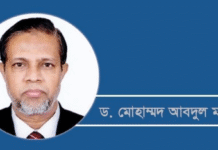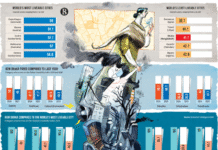Creating a skilled girlforce

International Day of the Girl Child (IDGC), is commemorated on October 11 every year, to highlight the challenges girls face, promote their empowerment and fulfil their human rights. This year, under the theme “With her: A skilled girlforce”, the day is dedicated to bringing together partners and stakeholders to advocate for, and draw attention and investments to, the most pressing needs and opportunities for girls to attain skills for employability. Globally we have witnessed too often that young girls are not given the same opportunities as boys, are excluded from political, economic and social arenas more and have little or no say in matters which impact on their lives. Many girls cannot realise their right to work, not only because they are not allowed to do so by their society, but also because they do not have the necessary skills which are sought after by different employment sectors.
Reflecting on how this year’s theme for the International Day of the Girl Child applies to Bangladesh, it is easy to identify several points of convergence. To begin with, Bangladesh has a very young population with approximately 33 million girls below the age of 18 years. These girl children (as well as boy children) present a demographic window of opportunity for the country where, if the right investments are made in their education, health and skills, Bangladesh can reap a demographic dividend in the near future. We also know that many of these girl children have limited opportunities to make decisions regarding their lives because of structural as well as personal factors: they often do not have the required skills to communicate, negotiate, think critically and stand up for their fundamental rights.
If we look at some key indicators for Bangladeshi girls, we see that while much has been achieved, more remains to be done: the enrolment rate for girls in secondary schools is relatively high at 66 percent but of this, approximately 38 percent drop out without completing their education (BANBEIS 2016); the unemployment rate among female and male youth aged 15-29 years is 11 percent and 7 percent respectively (LFS 2016); similarly, the proportion of female and male youth aged 15-29 years, Not in Education, Employment or Training (NEET) is heavily skewed at 51 percent and 9 percent respectively (LFS 2016); and finally, nearly 60 percent of women aged 20-24 years were married before the age of 18 years (BDHS 2014).
Young girls, especially those who remain in secondary and tertiary education, should ideally be preparing to enter the world of work, so that they can realise their full potential and contribute to their families, communities and societies. However the world of work which these young girls will be entering into is heavily automated and requires a specific set of skills—skills which most of these girls unfortunately do not have. With such high levels of unemployment among female youth, it is clear that as duty bearers we have a responsibility to ensure young girls have the necessary skills to make an effective transition into the world of formal work as skilled workers, instead of those who will continue to work in the informal sector where they will be paid minimum wage and be vulnerable to abuse and exploitation.
It is against this backdrop the United Nations Population Fund (UNFPA) provides life skills education, with a focus on preventing gender-based violence and providing information on sexual and reproductive health and rights through secondary schools and club-based interventions. The Generation Breakthrough (GB) project, funded by the Embassy of the Kingdom of the Netherlands (EKN) and the Global Programme to End Child Marriage funded by the European Union (EU) and the Department for International Development (DfID) of the United Kingdom, targets young people, specifically very young adolescent girls and boys, based on the premise that imparting life skills needs to begin at a very young age. It is only if these skills are ingrained in people that we can expect to see individuals who have a skills-set which can be used in a variety of settings: individuals who are able to negotiate when faced with challenging circumstances, individuals who can communicate effectively, individuals who are respectful of each other and individuals who will have the courage to stand up for their rights. In other words, individuals who have the necessary skills to fare well in an adult world and in the world of work.
The Gender Equity Movement in Schools (GEMS) module, approved by the Ministry of Education, is the first effective step that has been taken to reach young people when they are most impressionable. Imparting these skills to adolescent girls, coupled with basic livelihoods skills training, is even more important because not only will these girls have a set of transferable skills, but also some technical skills with which they can earn an income and support their families while continuing with their education. This holistic approach through which young adolescent girls will be given both life skills education and livelihoods training through the adolescent resource centres established by the Ministry of Women and Children Affairs plays an important part in the Global Programme to End Child Marriage. Imparting life skills education to adolescent girls, especially through a structured setting—so that it becomes part and parcel of her everyday life—will no doubt contribute to a skilled girlforce. A skilled girlforce who will become active “agents of change” in their own communities and contribute to the economy, social justice, inclusive growth and overall development.
Wilber Wright said, “it is possible to fly without motors, but not without knowledge and skill”. Giving adolescent girls knowledge and skills will make it possible for them to make that flight and reach their full potential.
Dr Asa Torkelsson is UNFPA Bangladesh Representative. Dr Sathya Doraiswamy is Chief of Health, UNFPA Bangladesh. Eshani Ruwanpura is Adolescents and Youth Programme Specialist of UNFPA.
Source: The Daily Star.









